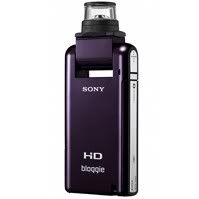 Online shopping has its own share of advantages and disadvantages. The plus side is pretty obvious: You get to snag items at a fraction of the cost for the same item sold in malls.
Online shopping has its own share of advantages and disadvantages. The plus side is pretty obvious: You get to snag items at a fraction of the cost for the same item sold in malls. The downside is that by dealing with anonymous individuals and virtual businesses without any physical address and sundry, you might fall for a scam.
Before you entrust your money to an online vendor, make it a habit to ask the merchant about buyer protection protocols. These may include any one or a combination of the following:
Before you entrust your money to an online vendor, make it a habit to ask the merchant about buyer protection protocols. These may include any one or a combination of the following:
- Disclosure of Seller's Personal Information. You will feel more at ease when you know the real identity of the seller. Confidential pieces of information such as the vendor's full name and bank account details help to assure you that you are dealing with a real person. You can also alert the bank if you suspect and will provide evidence of illegal activities engaged in by the merchant. (See also Full Bank Payment Before Sales - Should You Be Worried?).
- Official Receipts. Warranty cards are useless without the original proof of purchase. Authorized service centers will demand to see the official receipt. Chances are, your favorite online store doesn't issue any, because only registered businesses can issue official receipts. Your best bet would be to store your bank payment printouts, PayPal confirmation e-mails and the seller's acknowledgement messages so you can still demand for a service warranty.
- Service Warranties. Ask about warranties before buying any electronic devices. Trusted gadget sellers who get their stocks from legit distributors will normally offer a service warranty to cover repairs within a year from the date you purchased the item. Second-hand items are usually sold "as is," but it helps to ask the seller nicely for a personal warranty.
- Money Back Guarantee. By far, the best form of buyer protection online shoppers is the iron-clad money back guarantee. Not many online vendors will talk about it, but here's how you can actually protect yourself and your hard-earned cash:
- Choose sellers that accept PayPal payments. Although you are unable to know the seller's real name, you can rest easy. The PayPal buyer protection program entitles you to a full refund for the cost of the item and the shipping fees in case (a) the package never reached your end, (b) you received the wrong item or (c) the product that was shipped to you was not as described.
- Select online vendors that use reliable courier companies with efficient delivery times, effective tracking systems, responsive customer support and a solid insurance policy in place. There's no telling how much peace of mind an up-to-date online tracker will afford you. You'll even feel a lot better knowing that if the seller fully insured the package, you can get the declared value back from the courier company in the event that your package gets lost during transit.
Being online traders, we at the Shopping Bug fully understand your excitement and apprehensions regarding online transactions. This is why we are following all such protocols in our business. We hope you found our guide useful. Stay safe, and we wish you a pleasant and secure shopping experience on our blog shop!









1 comments:
PayPal is a great option when you're not sure about the seller.
Post a Comment